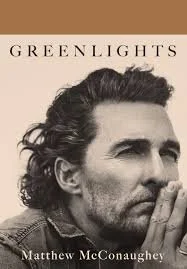What I’ve Learned From Imaginary Friends.
Let’s be clear, all of the people I’m about to introduce you to are indeed very real I just don’t know them. I mean I do, but I don’t. At least, not in the conventional sense of the word.
Since graduating I’ve been somewhat obsessed with reading about other people’s lives, specifically with them telling the story. Autobiographies are a treasure and I’m a greedy pirate forever searching for more loot (I wanted to say booty here but that didn’t sound as eloquent, so I’m telling you in a parenthetical whisper. Though I’m not entirely sure if the pirate analogy counts as eloquent either but we’ll disregard that as well. Am I doing this parentheses thing right?).
Bad analogies aside, I began my love affair with autobiographies in the Spring of 2019. Oh, what a weird time to think about, when our faces were still naked and unashamed. In said spring, Mr. Thomas Bahde, author and professor at Oregon State University, hosted an Honors College colloquium course (A discussion-based class used to more deeply explore topics you ordinarily wouldn’t, like our ever full colloquium on surviving the zombie apocalypse. And no, I didn’t take it…I took the vampire class.) on the underrated value of biographies and autobiographies.
One point he made, the only point that really stuck with me, was that these books have a way of showing you how unbelievably unique all of us are and, at the same time, how many similarities we actually share. And there’s something so beautiful and comforting in that thought.
These words that people pen to paper, either because they’re asked to for publicity purposes or because they’re driven by a need to share their story, bravely offer to the world a piece of themselves. Offering a story that can’t be found anywhere else but is recognizable almost everywhere.
For example, I’ve felt the sting of an absent father like Trevor Noah (and surprisingly a lot of other comedians, career change anyone?) but I most certainly did not grow up experiencing the life of a mixed child in a culture steeped in racism that rejected my very existence.
I’ve also felt the monsters in my head try to pull me down to a place I didn’t know existed like Jenny Lawson but I’ve never lived the life of a taxidermy-loving, midnight cat rodeo watching, non-koala cuddling filled life she does.
My point is when reading these books, not only do I get the opportunity to connect with these imaginary friends but I’m also given the chance to look at the world through their eyes, from their perspective.
We can experience the same type of situation but the way in which we experience these moments is where we find our uniqueness. For example, Trevor Noah took the absent father thing and became a comedian. I took it and became a psychology major. Similar situation, different outcome. Recognizing these similarities gives us a chance to look into the lives of others, and those moments we share, while also lending us a different lens with which we view the world.
Here’s what my imaginary friends have taught me:
Trevor Noah taught me that you’re never too big to dream if you’ve got the tenacity to chase it.
Sopan Deb taught me that it’s never too late for forgiveness and second chances. Or, to even, start again.
Matthew McConaughey taught me that you have to chase your heart to find it. To follow your “wet dreams” (weird quote, but 100% real).
Chip Gaines taught me that if you trust in God, take a chance on yourself, and find your moment to take that shot you’ll never be wrong cause fear can only hurt you, don’t let it get in your way.
Jenny Lawson taught me to find the humor in everything and be furiously happy, even if it’s to spite the universe.
David Chang taught me that sometimes the risks made out of necessity end up working out, if it’s meant to be it’ll be.
Kevin Hart taught me that moms really are the coolest no matter how tough they are on you (I already knew that but I thought I might say it louder for those in the back).
Suleika Jaouad taught me that there’s light even in the darkest times we just have to be able to see it and that’s there’s purpose in everything.
The point I’m making here in long-winded analogies and these one-sentence descriptors of some novels is that I urge you to begin expanding your worldview. Sometimes we only see what we want to see and sometimes we only see what we’re shown. Our view of the world is created through our experience in life (which seems obvious) so if we never take the time to burst our own bubble how will we ever see what lies on the other side?
So, again, I’d like to challenge you to make strides to expand your horizons beyond the limits you’re unable to see. Dive into this beautiful world, and witness all of the wonders that lie in our periphery. Because we’re all members of this one big human family, so a little extra understanding could go a long way and you’ll find yourself better for it. Actively taking this time and fully embracing the world is a step towards a brighter day.
We’re all the flowers of one garden, not beautiful because we’re all the same but beautiful because we’re all different.







